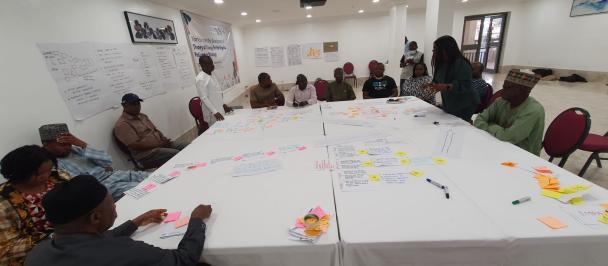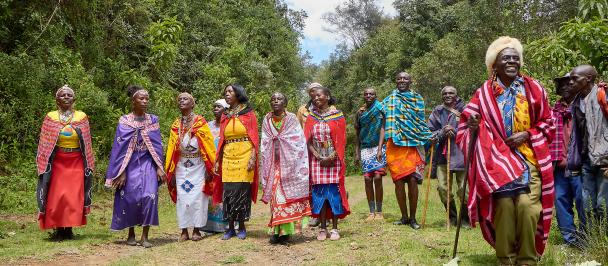Photo: UNDP
At the margin of the fourteenth meeting of the Conference of the Parties to the UN Convention to Combat Desertification (UNCCD COP 14), a new United Nations Coalition to Combat Sand and Dust Storms (SDS) was launched in New Delhi, India on 6 September 2019.
SDS, also known as sirocco, haboob, yellow dust, white storms, and the harmattan, are a natural phenomenon linked with land and water management and climate change. SDS have significant socio-economic impacts on human health, agriculture, industry, transportation, water and air quality. For instance, dust can cause damage to lungs and worsen the symptoms of bronchitis and respiratory diseases such as asthma. Globally, 334 million people and 14 per cent of world’s children experience asthmatic symptoms. In addition, just storms can transport pathogens such as meningitis and valley fever.
The SDS Coalition aims to:
- Prepare a global response which could be used to develop a UN system-wide approach
- Develop a strategy and action plan to identify entry points for supporting affected countries and regions to implement response measures
- Provide a forum for engaging partners and enhancing dialogue and collaboration among affected countries and UN agencies at global, regional, and sub-regional levels
- Provide a common platform for exchange of knowledge, data, resources, information and technical expertise
- Strengthen preparedness measures and strategies for risk reduction, consolidate policy, innovative solutions, advocacy and capacity-building efforts, and fundraising initiatives
- Identify and mobilize financial resources for joint responses to sand and dust storms
The Global Policy Centre on Resilient Ecosystems and Desertification (GC-RED) has been representing UNDP to support the establishment of the Coalition and will contribute to the implementation process particularly by leading the working group on SDS adaptation and mitigation.
During the Coalition launch event, GC-RED Director, Ms. Anne Juepner, emphasized the need to promote an integrated approach to mitigating SDS at their source through addressing desertification and land degradation. “UNDP will contribute to the global restoration goal of 350 million hectares of deforested and degraded lands and will support the conservation and sustainable management of another 500 million hectares by 2030, with an emphasis on land that can achieve multiple development and climate dividends,” she said.
The Coalition members include: UNCCD, UN Environment Programme (UNEP), International Civil Aviation Organization (ICAO), UN Human Settlements Programme (UN-Habitat), UN Economic and Social Commission for Asia and the Pacific (ESCAP), UN Economic Commission for Europe (ECE), World Meteorological Organization (WMO), World Health Organization (WHO), UN Development Programme (UNDP), World Bank, International Union for Conservation of Nature (IUCN), the Food and Agriculture Organization of the UN (FAO), the UN Institute for Training and Research (UNITAR) and the International Telecommunication Union (ITU).

 Locations
Locations

